New Caledonia, Right Place Wrong Time
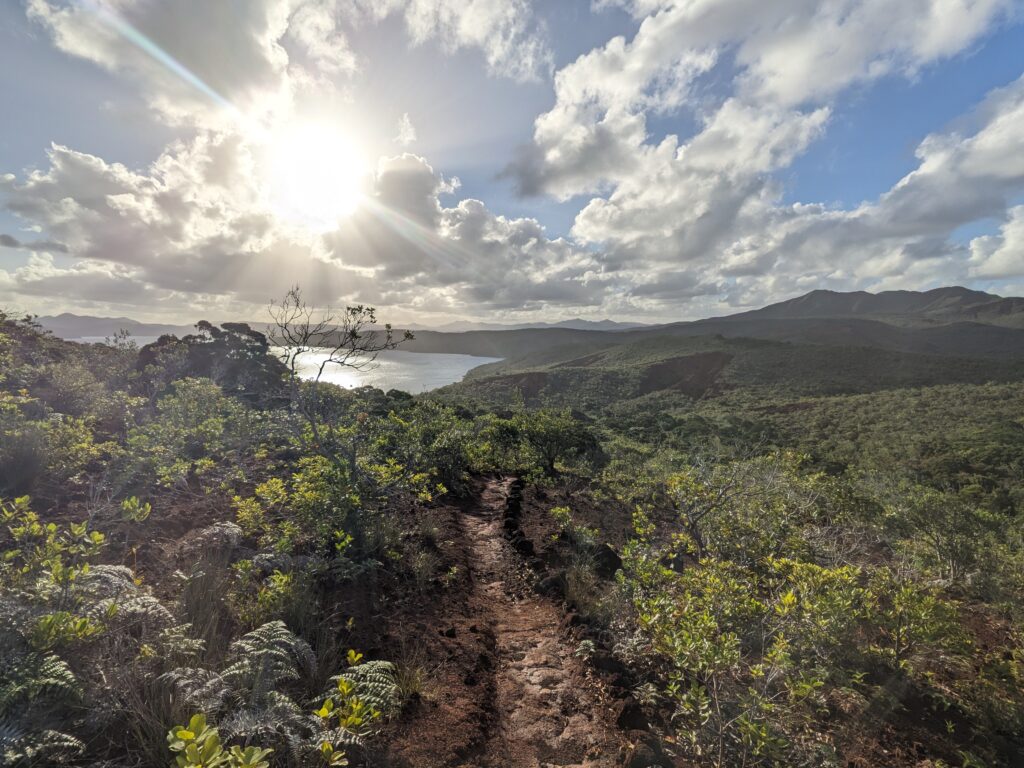
On May 3 we arrived in New Caledonia, a French territory in Melanesia. We docked in the capital city of Noumea on a Friday afternoon, cleared customs, and walked into town in search of french baking.
We were pretty excited to get back to a country that takes the baguette seriously. This whole country is shaped like a baguette, so our expectations were high. Most of the shops were closed on that first Friday evening, but we found a 24 hour gas station, and voila!, a bakery section. It wasn’t exactly a Michelin dining experience, but after 7 days at sea we weren’t picky.
Grande Terre, the main island of New Caledonia, is roughly the size of Vancouver Island, yet holds twenty-five percent of the world’s nickel repositories along with a generous endowment of cobalt. The population is only 270,000 and two thirds of these live in the only large city, Noumea.
We spent five days exploring this lovely city, enjoying the blend of French and Melanesian culture. So many bakeries! So much pastry! We can’t fathom how this population can consume all the pastry it produces each day, but we did our best to help out.
We observed a peaceful demonstration in the city centre one afternoon, organized by the local independence movement. As tourists we steered clear, but we spent a little time researching the local issues. The demonstrators were protesting an upcoming vote in the French parliament that would grant local voting rights to more recent immigrants (mostly European). If passed this would potentially weaken the prospect of independence.
After a nice time in the city we left to explore a little to the south, and the scenery was fascinating. The mineral rich red hills are carpeted with uniquely adapted vegetation. On the beaches we found more pine trees than palm trees. We were struck by the vast emptiness of the place.
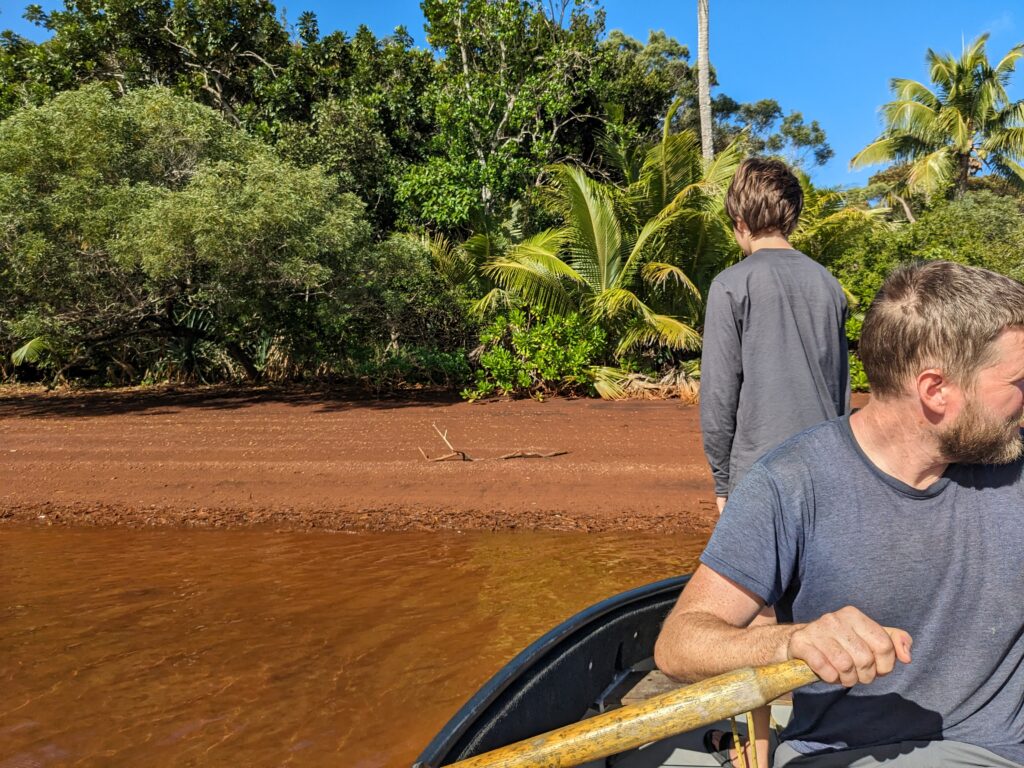
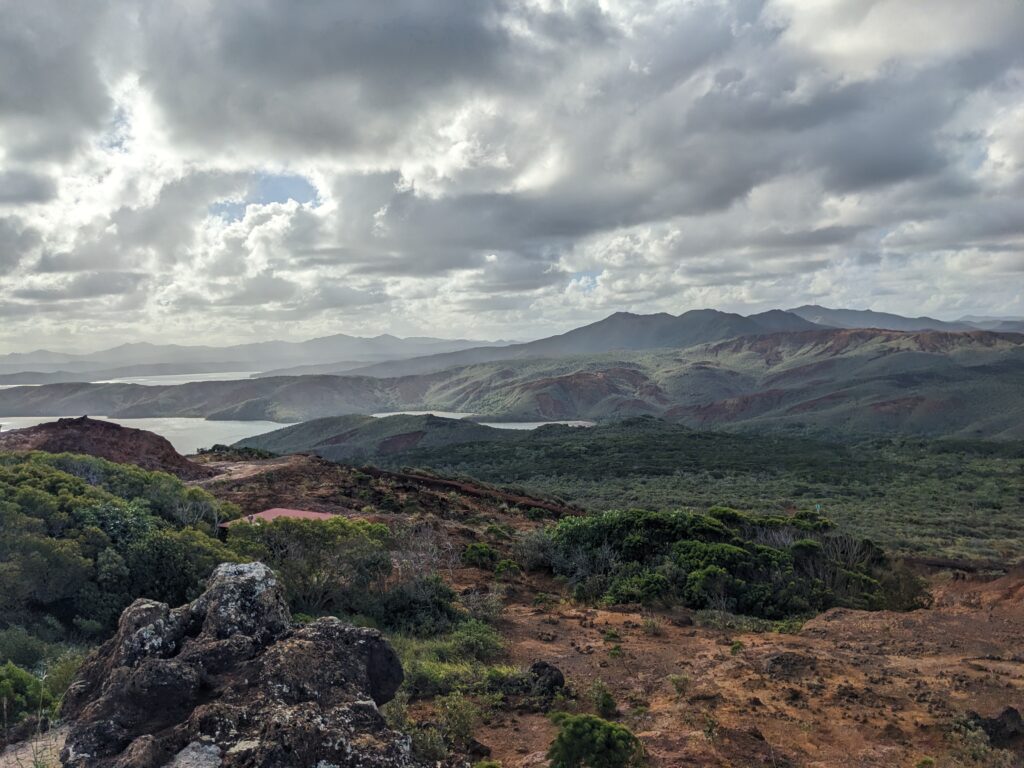
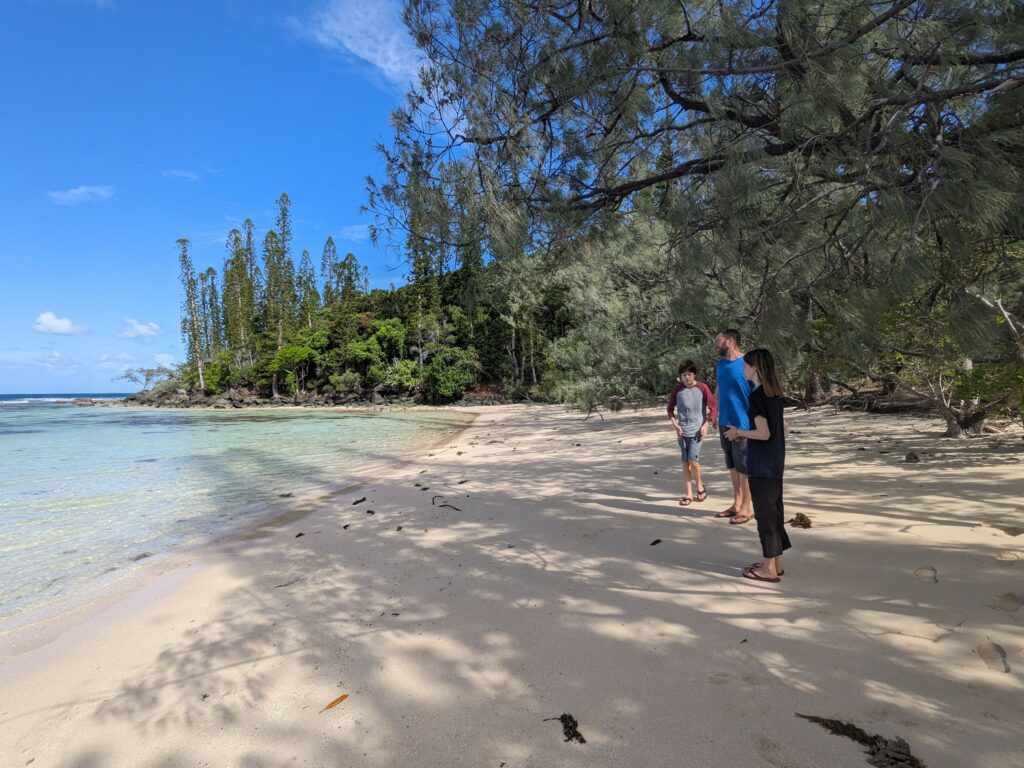
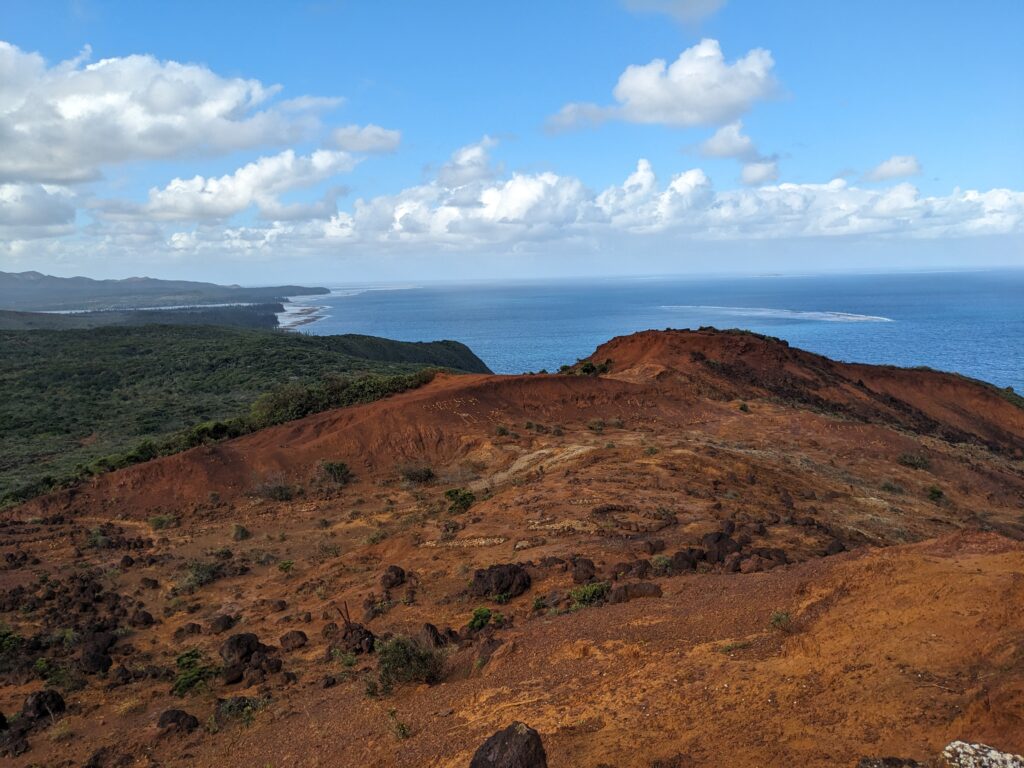
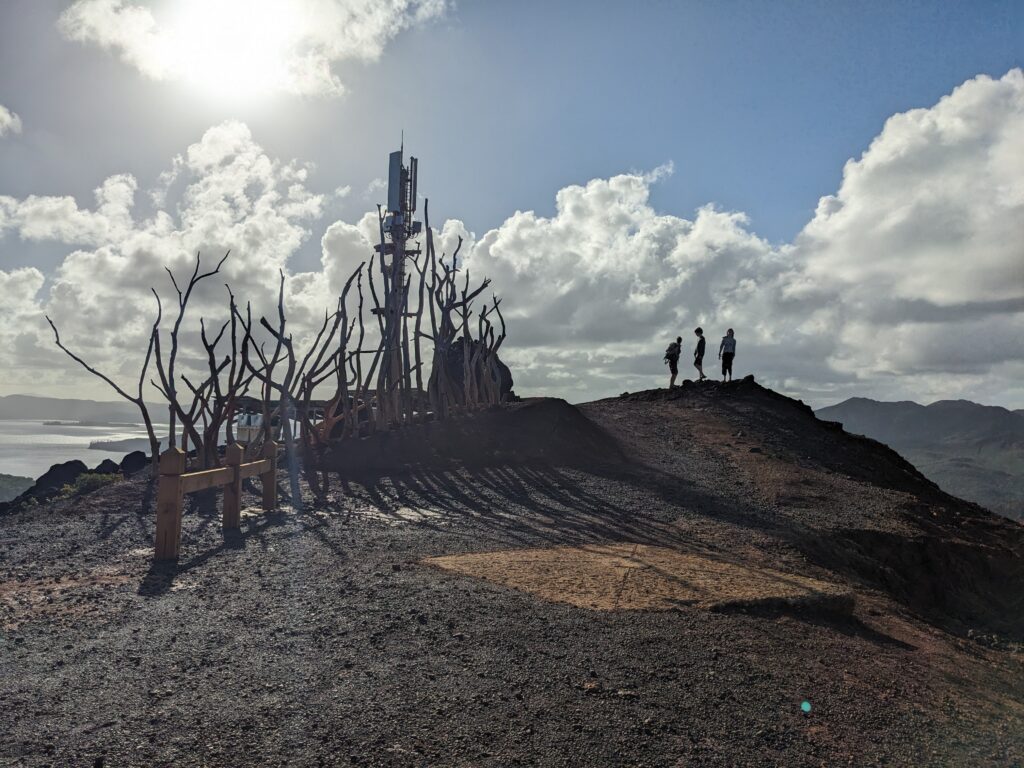
One evening, tied to a mooring buoy, the wind died and Mandolyn drifted around on a collision course with the boat next to us. This is a great way to meet your neighbors! We fended off the collision along with the other captain, who invited us over for coffee and ‘pain perdu’ the next day. The four people on the boat were French residents, and gave us a simplified overview of local politics.
New Caledonia has three main population groups: The indigenous Islanders (Kanaks), the European descendants of penal colonists (Caldoche), and lastly, the more recent European immigrants. “None of them get along!” explained our host with a smile. Surely an exaggeration.
After a few days in the south we returned to Noumea to begin checking out from the country. The city felt different this time. Sarah commented that the energy felt off. There were more protesters now, walking around draped in flags. We felt less comfortable, and made plans to leave the next day. We were staying at Port Moselle Marina, a couple of blocks from the city centre.
That night, Monday the 13th, once darkness fell, we started to hear sounds of unrest. Shouting and car horns at first, then the odd siren. The kids looked to us with raised eyebrows when an explosion like a thunderclap detonated not too far away. More shouting, sirens, and many more explosions. This went on for most of the night. We never felt in danger in the marina, though in retrospect perhaps this was naive.
In the morning we learned that protesters had clashed with police all night. Rioters burned many homes and businesses. An estimated 200 fires were set. There were many arrests and many injured.
We discovered the explosive noises were likely crowd control grenades employed by the gendarme.
That morning all seemed quiet, but we felt spooked and left Noumea to a nearby anchorage, out in the lagoon. Columns of smoke rose over the city as we motored out of the harbour.
We monitored the news all day and things appeared to have settled a bit. We wondered if we were overly paranoid to have left, as we still needed to deal with customs officials in town. There was just one other boat anchored with us, most others remained in the city.
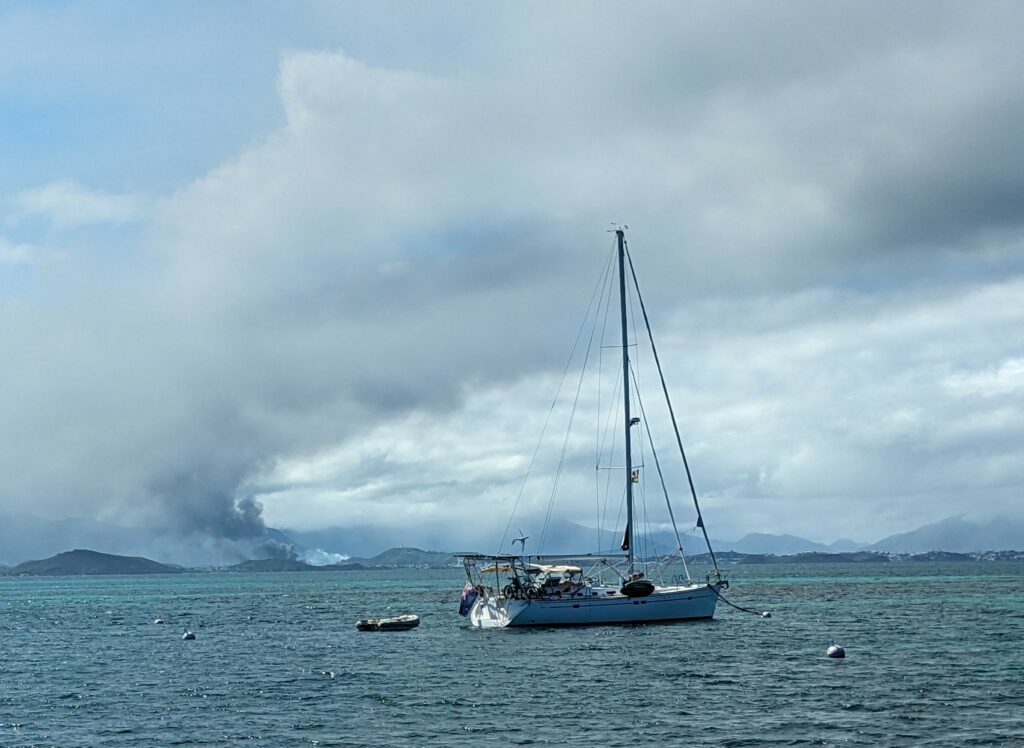
Despite a curfew order, the next night brought more serious violence. There were several fatalities, including a police officer. Locals erected barriers and formed impromptu militias to defend their neighborhoods. People living in the marinas blockaded the access gates, organized security rotations, and prepared firehoses to repel potential attack.
After that second night of violence an exodus of boats fled the city. Our anchorage filled up, along with the next one over. Some of these people lived on their boats and some lived on land. Many had children, and none felt safe in the city.
It was a surreal situation, anchored off an idyllic tropical beach, hanging out with lovely people, aware of the unnatural disaster unfolding just seven miles away. Each morning we’d look towards Noumea hoping not to see new fires burning.
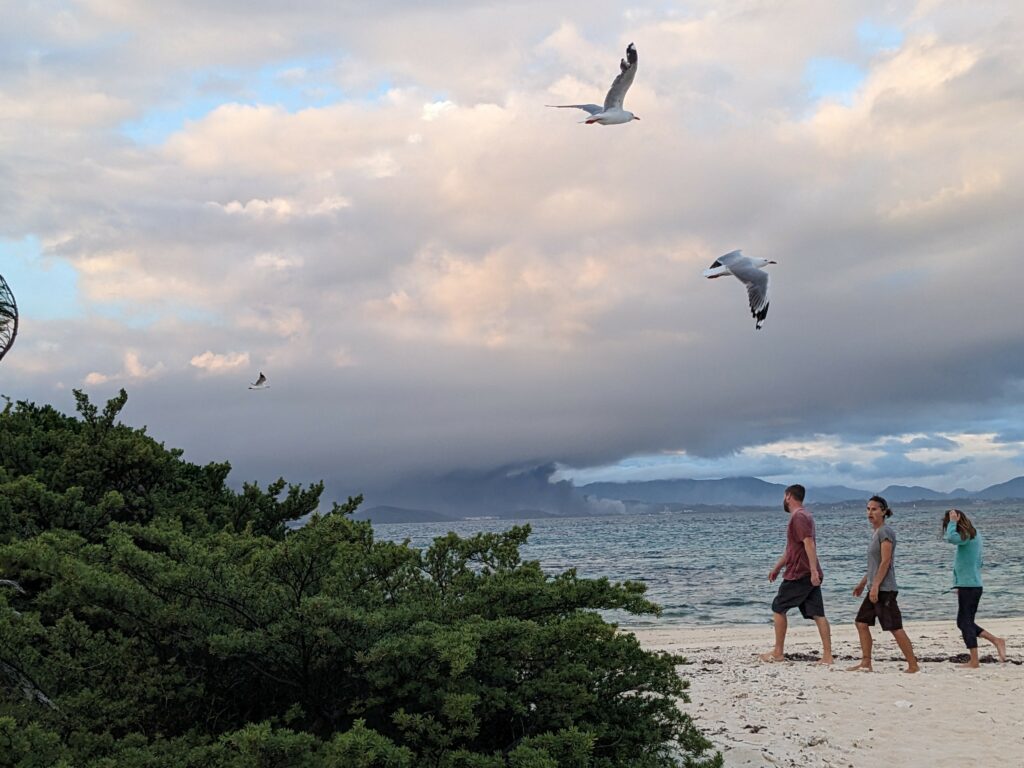
We felt very secure in our location. A navy ship patrolled the waters around Noumea and there was never a hint of trouble on the water. A state of emergency was declared, and troops were brought in from French Polynesia and France.
This was a heartbreaking situation to observe. So many injured and so much physical damage to the country. Thousands of jobs up in smoke with burned factories and businesses. So much senseless destruction of the infrastructure essential to everyone, protestor or not.
After 5 days or so the extra military presence brought many areas under control, but as of now the violence continues in many places. The state of emergency and curfew will remain in place for at least 12 days.
The contentious legislation in France ultimately passed.
We’d met two local families in the time before the riots, and both are now considering leaving the country. It was difficult enough before this, they explained. Now it will be even less affordable, and it will be hard trying to move forward as a community when so many either took part in, or supported the riots. It’s a small population.
In order for us to depart the country legally we needed signed documents from three different government agencies. This can be a beaurocratic triathlon at the best of times. After several days and a hundred emails we got through to the right people and secured our exit paperwork from a distance. We were surprised and grateful that these officials still attended to their jobs under the circumstances.
We feel guilty sailing off to Vanuatu with our home and our lives intact, while the people here are standing in long food lines under military occupation. We hope that the country can get through this and bounce back. We hope they can find a way to repair relations and move forward as one community. It really felt like a special place before things boiled over.
We wish the best for New Caledonia. We hope to return in better times.
5 thoughts on “New Caledonia, Right Place Wrong Time”
Wow. Appreciate your on-the-water journalism, sharing this experience.
So happy you are safe….enjoy Vanuatu.
I feel for the country. Glad you were able to leave !
Glad you are all safe!
What a fascinating read – serious issues in our world – so glad you are safe and being smart.
Comments are closed.